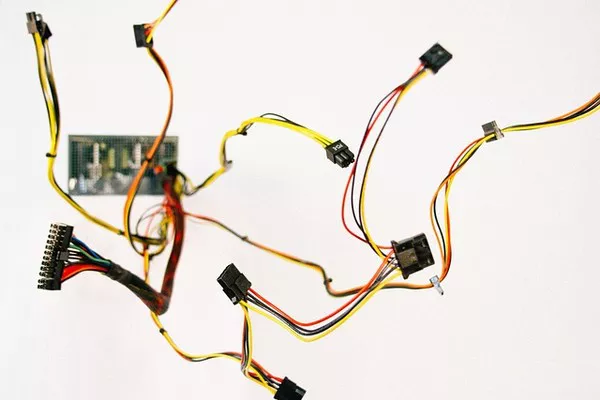Electrical equipment plays a pivotal role in our daily lives, powering our homes, offices, and industries. From household appliances to sophisticated machinery, electricity drives modern conveniences and productivity. However, using electrical equipment carries inherent risks that can lead to accidents, injuries, or even fatalities if not handled with caution. To ensure safety and prevent electrical hazards, it is essential to take necessary precautions before using electrical equipment. In this article, we will explore crucial steps and guidelines that should be followed to protect yourself and others while utilizing electrical appliances and devices.
Understand Electrical Equipment and its Ratings
Before using any electrical equipment, it is crucial to understand its specifications and ratings. Every electrical device comes with a label that provides important information such as voltage requirements, wattage, amperage, and other safety warnings. Familiarize yourself with these details to ensure the equipment is compatible with your power supply and to avoid overloading circuits. Overloading can lead to overheating, circuit damage, and potential fire hazards.
Conduct a Visual Inspection
Performing a visual inspection of electrical equipment before use is a vital step in ensuring safety. Check for any signs of damage, wear, or frayed wires. Examine plugs and cords for cracks, exposed conductors, or loose connections. If any damage is detected, avoid using the equipment and have it repaired or replaced by a qualified professional.
Verify Grounding and Earthing
Proper grounding and earthing of electrical equipment are crucial for safety. Grounding helps divert excess electrical current and ensures that any faults are safely conducted away from users. Check that plugs have three-pronged grounded plugs, and the outlet is properly grounded. In locations with poor grounding systems, consider using a ground fault circuit interrupter (GFCI) for additional protection.
Keep the Area Dry
Electricity and water are a dangerous combination. Before using electrical equipment, ensure that the area is dry and free from any moisture. Avoid using electrical devices in damp or wet conditions to prevent electrical shocks and short circuits.
Use the Right Electrical Outlet
Matching the electrical equipment’s plug with the appropriate outlet is essential. Never force a plug into an incompatible outlet or use adapters to fit plugs into non-matching receptacles. Using incorrect outlets can lead to overheating, electrical shocks, and potential fire hazards.
Unplug Appliances When Not in Use
When electrical equipment is not in use, always unplug it from the power source. Leaving devices plugged in can lead to unnecessary energy consumption and poses a safety risk, especially in the event of power surges or electrical storms.
Educate Family Members and Co-workers
If you are using electrical equipment in a shared living or working space, educate family members or co-workers about the proper use and precautions associated with the devices. Knowledge of safety measures is essential for everyone’s well-being.
Avoid Overloading Circuits
Overloading electrical circuits is a common cause of electrical accidents. Ensure that the electrical load on a circuit does not exceed its capacity. Distribute electrical devices evenly across different circuits to prevent overload and reduce the risk of electrical fires.
Use Surge Protectors
In areas with frequent power surges or lightning strikes, consider using surge protectors to safeguard electronic equipment from sudden voltage spikes. Surge protectors help prevent damage to sensitive devices and add an extra layer of protection.
Never Overlook Warning Signs
Many electrical appliances are equipped with warning signs or indicators. Pay close attention to these alerts and adhere to the manufacturer’s guidelines. Ignoring warning signs can lead to dangerous situations and void warranties on the equipment.
Store Electrical Equipment Safely
Proper storage of electrical equipment is crucial for maintaining its integrity and preventing potential hazards. Store devices in cool, dry locations away from direct sunlight and extreme temperatures. Avoid storing electrical equipment near water sources or in places with high humidity.
Keep Flammable Materials Away
Electrical equipment generates heat during operation, making it important to keep flammable materials such as paper, fabric, and chemicals away from the device. Combining flammable materials with electrical equipment can lead to fire incidents.
Do Not Modify Electrical Equipment
Modifying electrical equipment is hazardous and can void warranties. Never attempt to alter the design, replace parts, or bypass safety features of electrical devices. Only trained and certified professionals should make repairs or modifications.
Follow Manufacturer’s Instructions
Every electrical equipment comes with a user manual that includes important instructions for proper usage and maintenance. Always follow the manufacturer’s guidelines and recommendations to ensure safe and efficient operation.
Perform Regular Maintenance
Regular maintenance of electrical equipment is crucial for its optimal performance and longevity. Have the devices inspected and serviced by qualified professionals at recommended intervals to identify any potential issues.
Conclusion
Using electrical equipment is an integral part of modern life, but it comes with significant responsibilities to ensure safety. By following these essential precautions before using electrical equipment, you can minimize the risk of accidents, electrical shocks, and fires. Understanding equipment ratings, conducting visual inspections, and verifying grounding are fundamental steps in promoting electrical safety. It is equally important to use the right electrical outlets, keep the area dry, and avoid overloading circuits. Educating family members or co-workers about safety measures, using surge protectors, and storing equipment correctly are additional measures to ensure a secure electrical environment.
Always remember to never overlook warning signs, store electrical equipment safely, and keep flammable materials away from the devices. Lastly, never attempt to modify electrical equipment, and instead rely on professional maintenance and repairs.
By incorporating these precautions into your routine, you can enjoy the benefits of electrical equipment while safeguarding yourself and others from potential hazards, ensuring a safer and more enjoyable experience in the modern electrical world.

